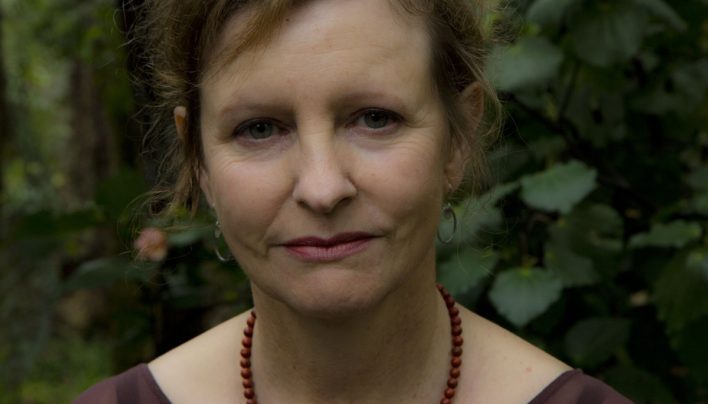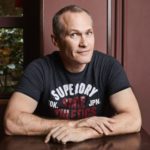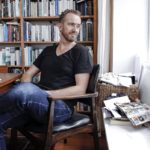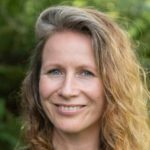Deborah Shepard will be in-store on Thursday 8th November 2018, 12-12:45pm, to discuss with publisher Nicola Legat, her new book The Writing Life: Twelve New Zealand Authors. Her author interview, book blurb and author biography are below. Enjoy!
ABOUT THE BOOK
A unique, candid and intimate survey of the life and work of 12 of our most acclaimed writers: Patricia Grace, Tessa Duder, Owen Marshall, Philip Temple, David Hill, Joy Cowley, Vincent O’Sullivan, Albert Wendt, Marilyn Duckworth, Chris Else, Fiona Kidman and Witi Ihimaera.
Constructed as Q&As with experienced oral historian Deborah Shepard, they offer a marvellous insight into their careers. As a group they are now the ‘elders’ of New Zealand literature; they forged the path for the current generation. Together the authors trace their publishing and literary history from 1959 to 2018, through what might now be viewed as a golden era of publishing into the more unsettled climate of today. They address universal themes: the death of parents and loved ones, the good things that come with ageing, the components of a satisfying life, and much more. And they give advice on writing.
The book has an historical continuity, showing fruitful and fascinating links between individuals who have negotiated the same literary terrain for more than sixty years. To further honour them are magnificent photo portraits by distinguished photographer John McDermott, commissioned by the publisher for this project.
ABOUT DEBORAH
Deborah Shepard is an author, teacher of memoir, oral historian and film and art historian. She has also been a Film, TV and Media Studies lecturer at the University of Auckland. Her major publications include Her Life’s Work: Conversations with Five New Zealand Women (2009), Between the Lives: Partners in Art (2005), Reframing Women: History of New Zealand Film (2000), and Giving Yourself to Life: A Journal of Pain, Hope and Renewal (2015). Deborah teaches introductory and Master classes in memoir and is a life writing mentor for the New Zealand Society of Authors.
WHAT ARE YOU CURRENTLY READING AND HOW DID YOU DISCOVER THE BOOK(S)?
I have just finished reading Fiona Kidman’s All Day at the Movies (the book she was in the midst of proofing over the days I interviewed her for The Writing Life) and now I’m about to start her latest book, This Mortal Boy.
WHO ARE YOUR FAVOURITE WRITERS AND WHAT DO YOU LOVE ABOUT THEM?
I teach memoir through public programmes at the University of Auckland. One of the writers I find most engaging and intellectually satisfying is Blake Morrison, who teaches life writing at Goldsmith College. He wrote two companion memoirs about his GP parents, And When Did You Last See Your father? and Things My Mother Never Told Me. He then followed up with a brave article in GRANTA where he explored the personal consequences of the first book, including his mother’s reaction to his account of his father’s long running affair. On reading it she told his sister she felt like “topping herself”. His examination of his ethics is so honest and unsparing that I like to refer to the text on my courses as it always produces a lively discussion of memoir and ethics and some soul-searching too.
WHAT BOOKS ARE ON YOUR BEDSIDE TABLE?
Fiona Kidman’s books are there along with books on Buddhism and meditation. I’m particularly fond of Wherever You Go, There You Are by Jon Kabat-Zinn. When I’m busy, seeing the title there by my bed always settles me.
WHAT IS YOUR FAVOURITE BOOK-TO-FILM ADAPTATION?
Winding back to a dim memory from long ago I remember the adaptation of John Fowles’ novel The French Lieutenant’s Woman. I’m not sure I would now approve of its gender politics but there was something compelling about the image of Meryl Streep in hooded long cape on The Cobb at Lyme Regis, a small figure set against swirling high seas, vulnerable and yet tenacious too.
WHAT BOOK HAVE YOU RE-READ THE MOST AND WHY?
I’ve read a lot of Margaret Forster, her non-fiction more than her novels, and find myself returning most often to Precious Lives, her memoir of her father and her sister-in-law who died in close succession. I think in that book, which is about dying, she is at her most insightful and tender.
WHO IS YOUR FAVOURITE LITERARY CHARACTER?
There are many but the character of Harriet Wallace in Fiona Kidman’s A Breed of Women (1979) made a deep impression on me at the time of its publication. It arrived during the heady years of women’s liberation in New Zealand, when I was just finishing my university degree and beginning to read and respond to the texts of female empowerment that were pouring out of the US and England. Finding a New Zealand novel about a complex, feminist character was incredibly important and liberating.
WHAT BOOK HAVE YOU ALWAYS BEEN MEANING TO READ BUT STILL HAVEN’T GOTTEN AROUND TO?
I like to journal and often I include observations of nature. At the moment I have a collection of books on nature writing waiting to be read, The Wild Places by Robert Macfarlane and Waterlog by Roger Deakin, to name two. Next year I will be teaching a workshop on nature writing at Karekare in the Waitakeres. I’m looking forward to reading these books in preparation.
WHICH THREE WRITERS WOULD YOU HAVE OVER FOR DINNER?
I’ve been very fortunate to sit at the tables of all twelve authors who feature in The Writing Life. But how I would love to entertain Katherine Mansfield at my table. I’d ask her to read from her journal. I’d invite Kate Llewellyn, Australian poet and author of The Waterlily: A Blue Mountains Journal, and ask her to read as well. Her writing is passionate and daring and the nature imagery always so fresh and whimsical. I just love her. I wish that I could offer food and sanctuary to Etty Hillesum, who wrote a shattering and profoundly moving journal over the final two years of her life in occupied Holland. Her last journal entry was written on a postcard and thrown from the train as it left, with Etty and her family on board, for Auschwitz. She was young and very talented. She should have lived.
WHAT WOULD YOU COOK THEM?
Something vegetarian and tasty, served with a glass of Kombucha. I have a delicious recipe for oranges soaked in an orange blossom syrup that I would serve with Kohu Road Coconut ice cream for dessert.
HOW ARE YOUR BOOKS SHELVED AND ORGANISED AT HOME?
I have a series of shelves in my study organised along library classification lines and in subjects — memoir, feminism, film, art history, New Zealand literature and all its sub-genres. Upstairs in my bedroom I have all the journals I teach on my journal workshop on shelves near the desk where I like to write my journal, by lamplight, before going to bed. On my desk in the study I have a selection of my favourite books, the ones that inspire me to keep going as a writer. They include two books on resilience; an old pale blue leather copy of Katherine Mansfield’s journal as collected by J.M Murry; a thoughtful book Composing a Life by Mary Catherine Bateson, daughter of Margaret Mead; Edna O’Brien’s stunningly lyrical memoir Country Girl; books of poetry by Jenny Bornholdt, Sarah Broom, Vincent O’Sullivan and Hone Tuwhare; Tuwhare’s Small Holes in the Silence; Witi Ihimaera’s collection Growing Up Maori, and a haunting nature memoir Refuge: An Unnatural History of Family and Place by Terry Tempest Williams.
WHAT IS YOUR FAVOURITE LITERARY QUOTE?
Always at my first session on memoir I quote from Natalie Goldberg’s seminal text on writing and creativity, Writing Down the Bones: Freeing the Writer Within.
“We are here; we are human beings; this is how we lived. Let it be known, the earth passed before us. Our details are important.”






